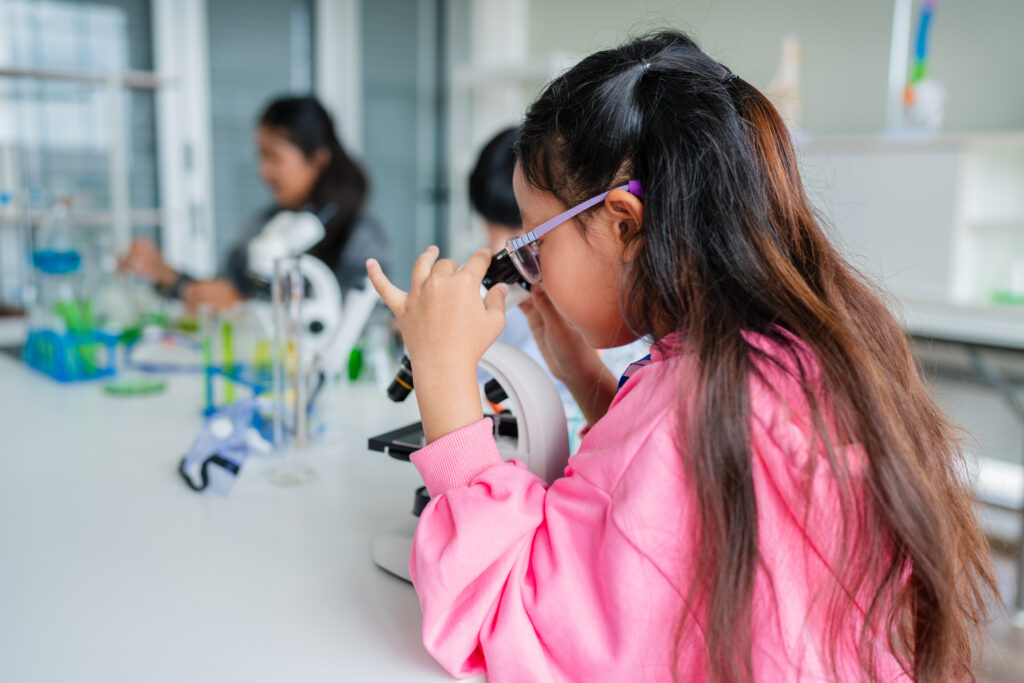February 11 is the annual International Day of Women and Girls in Science 2025, a global observance dedicated to recognizing the contributions of women in STEM (science, technology, engineering and mathematics) and advocating for gender equality in scientific fields.
This year marks 10 years since the day was established by the United Nations General Assembly (UNGA) in 2015 by the passing of Resolution A/RES/70/212.
The day serves as a reminder of the ongoing efforts needed to close the gender gap in science and empower girls and women to pursue careers in STEM.
It is implemented by UNESCO and UN-Women in collaboration with institutions and civil society partners that aim to promote women and girls in science.
UNESCO says gender equality is “a global priority” for the organization and that “the support of young girls, their education and their full ability to make their ideas heard are levers for development and peace.”
This year also marks the 30th anniversary of the Beijing Declaration and Platform for Action that committed to advancing the goals of equality, development and peace for all women in the interest of all humanity.
Together, the UN says the two are significant milestones in the global effort to promote gender equality and women’s empowerment.
“On the 10th anniversary of this important day, and as we reflect on 30 years since the Beijing Declaration, let’s help pave a path to STEM careers that women and girls deserve — and our world needs,” said UN Secretary-General António Guterres to mark the occasion.
The Importance of Gender Equality in Science
Women have historically been underrepresented in scientific disciplines due to systemic barriers, societal biases and lack of opportunities.
Despite advancements, disparities persist. According to UNESCO, only one in three scientists worldwide are women and gender gaps remain significant in areas like artificial intelligence (AI), physics and engineering.
According to the UN, women make up just 22% (or about one in five) of professionals in the field of AI.
Despite a growing demand for skilled workers in the industries driving the Fourth Industrial Revolution, women still represent only 28% of engineering graduates and 40% of those in computer science and informatics.
As women progress in their scientific careers, the gender gap widens, with senior research management positions remaining overwhelmingly male-dominated.
Concerningly, a 2022 study revealed that half of all female scientists have encountered sexual harassment in the workplace. According to the report, only 53% of sexual harassment victims have spoken out, and just 19% did so within their institution. Seven in ten scientists believe sexism and harassment in research are not discussed enough, while 64% regret the lack of effective measures to prevent or address workplace harassment, highlighting the urgent need for structural and cultural reforms in scientific institutions.
Encouraging diversity in science is not just a matter of equality; it is essential for innovation says the UN. Diverse perspectives lead to more comprehensive research, enhanced problem-solving and technological breakthroughs that benefit society as a whole.
Women Leading Scientific Innovation
Female scientists have had a transformative impact throughout history, which serves as a reminder and inspiration to young girls for the pursuit of STEM careers.
Throughout history, women have made groundbreaking contributions to science despite challenges. Figures like Marie Curie, Rosalind Franklin and Katherine Johnson paved the way for future generations.
Today, women continue to lead in various scientific domains, from Nobel Prize-winning scientists Dr. Emmanuelle Charpentier and Dr. Jennifer Doudna who revolutionized gene editing with CRISPR technology, to immunologist Dr. Kizzmekia Corbett whose work was crucial in developing mRNA COVID-19 vaccines and Dr. Hayat Sindi, a biotechnologist pioneering affordable diagnostic tools for global health.
Marking International Day of Women and Girls in Science 2025 at the UN and UNESCO
At the UN headquarters in New York this year, the 10th Anniversary of the International Day of Women and Girls in Science is being organized by the Royal Academy of Science International Trust (RASIT) and the Permanent Mission of Malta with the theme “Charting Progress to Shape the Future: The Best is Yet to Come.”
RASIT works with the UN and its member states and entities, along with inter-governmental organizations, to achieve equality in science, technology and innovation for socio-economic sustainable development, in line with the UN 2030 Agenda for Sustainable Development.
To mark International Day of Women and Girls in Science last year, UNESCO launched its call to action ‘Closing the Gender Gap in Science.’
Based on insights from UNESCO’s 2023 Global Forum on ‘The Future for Women and Girls in Science,’ the initiative incorporates contributions from diverse stakeholders, including international organizations, governments, NGOs and academia, who came together to outline recommendations to address the root causes of the gender gap in science.
This year, UNESCO is hosting an event titled ‘2025 International Day of Women and Girls in Science — Unpacking STEM Careers: Her Voice in Science’ in Paris, France to mark the day. The symposia will build on its “Closing the Gender Gap in Science” call to action in which UNESCO says they “will explore together the critical role of women in scientific innovation and discuss the need for inclusive media representation to challenge gender stereotypes in STEM careers.”
Key Initiatives for 2025
To bridge the gender gap, investments in STEM education, mentorship programs and workplace inclusivity are essential. Governments, educational institutions and private sectors must work collaboratively to create environments where women and girls thrive in science.
Some key initiatives include:
- Scholarship programs supporting women in STEM fields
- STEM mentorship programs pairing young girls with female scientists
- Corporate and academic policies ensuring equal opportunities and pay equity
- Media representation to challenge stereotypes and highlight female role models in science
The International Day of Women and Girls in Science has consistently involved a call to action to improve and empower women and girls in science.
Achieving gender equality in STEM is a collective effort that requires societal change, institutional support and individual commitment. By empowering women in science, we not only foster innovation but also build a more inclusive and equitable future in support of the next generation of women scientists who will help shape the future of our world.












Join or login to leave a comment
JOIN LOGIN